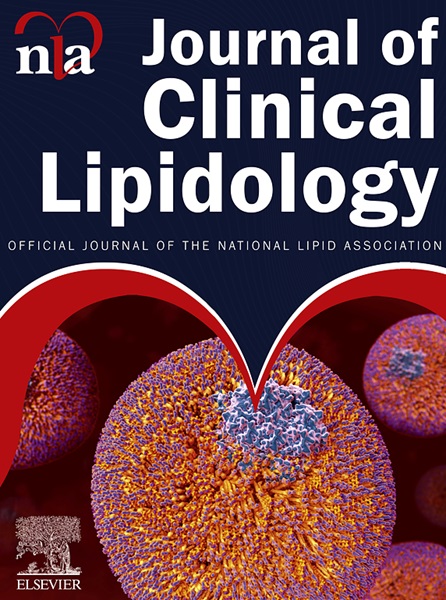Impact of value-based comprehensive medication management on statin prescribing in patients with type 2 diabetes mellitus
IF 3.6
3区 医学
Q2 PHARMACOLOGY & PHARMACY
引用次数: 0
Abstract
Background/Synopsis
Patients with diabetes are at an increased risk for cardiovascular events as well as cardiovascular mortality. Evidence based practice guidelines recommend statins for a reduction in cardiovascular events in patients with diabetes. Despite the evidence, guideline-directed prescribing of statin therapy remains suboptimal due to a variety of reasons including patient hesitation due to adverse effects, medication adherence, clinical inertia, continuity of care, as well as socioeconomic barriers.
Objective/Purpose
Evaluate the impact of comprehensive medication management (CMM) performed by an Accountable Care Organization (ACO) Clinical Pharmacy Specialist (CPS) on statin prescribing in patients with type 2 diabetes mellitus (T2DM).
Methods
We performed a retrospective chart review to evaluate the impact of medication management performed by an ACO CPS on statin prescribing in patients with type 2 diabetes mellitus. Patient medical records as well as payer claims data were reviewed. Inclusion criteria consisted of Medicare Advantage patients who did not receive a statin prescription in 2020. Epic secure chat and in-basket messaging were primary modes of communication in the intervention arm, while fax, reports, and telephone calls were implemented in the standard of care arm.
Results
A total of 75 patients were included in the ACO Medication Management arm and 63 patients in the standard of care arm. An increase in statin prescribing was seen for both arms, 52% vs. 31.7%, respectively. 97% of patients in the ACO Medication Management arm had a diagnosis for T2DM compared to 100% in the standard of care arm. 19.4% of patients had atherosclerotic cardiovascular disease (ASCVD) in the ACO Medication Management arm compared to 17.0% in the standard of care arm. There were a total of 138 Medication Management encounters documented in the electronic medical record. The ACO Clinical Pharmacy Specialist identified 175 medication therapy problems. 141 medication therapy problems had actionable pharmacotherapy interventions and 61% of these recommendations were accepted by providers.
Conclusions
Value-based medication management by a CPS utilizing secure chat and in basket messaging resulted in an increase in statin prescribing by 52% compared to 31.7% with standard of care interventions. Medication management improved prescribing of guideline-directed pharmacotherapy for the primary and secondary prevention of ASCVD in patients with T2DM within a value-based delivery model.
基于价值的综合用药管理对2型糖尿病患者他汀类药物处方的影响
背景/摘要糖尿病患者发生心血管事件和心血管死亡的风险增加。循证实践指南推荐他汀类药物用于减少糖尿病患者的心血管事件。尽管有证据,但由于各种原因,包括由于不良反应引起的患者犹豫、药物依从性、临床惯性、护理连续性以及社会经济障碍,指南指导的他汀类药物处方仍然不是最佳的。目的/目的评价由责任医疗组织(ACO)临床药学专家(CPS)实施的综合用药管理(CMM)对2型糖尿病(T2DM)患者他汀类药物处方的影响。方法采用回顾性图表分析,评价ACO CPS对2型糖尿病患者他汀类药物处方的影响。审查了患者医疗记录以及付款人索赔数据。纳入标准包括2020年未接受他汀类药物处方的Medicare Advantage患者。Epic安全聊天和收件箱消息是干预组的主要通信方式,而传真、报告和电话是标准护理组的主要通信方式。结果ACO用药管理组75例,标准护理组63例。两组的他汀类药物处方均增加,分别为52%和31.7%。ACO药物管理组97%的患者诊断为T2DM,而标准护理组为100%。在ACO药物管理组中,19.4%的患者患有动脉粥样硬化性心血管疾病(ASCVD),而在标准护理组中,这一比例为17.0%。电子病历中总共记录了138次药物管理遭遇。ACO临床药学专家确定了175个药物治疗问题。141个药物治疗问题具有可操作的药物治疗干预措施,其中61%的建议被提供者接受。结论:CPS利用安全聊天和篮子内信息进行的基于价值的药物管理导致他汀类药物处方增加了52%,而标准护理干预措施增加了31.7%。在基于价值的交付模式下,药物管理改善了指导药物治疗的处方,用于T2DM患者ASCVD的一级和二级预防。
本文章由计算机程序翻译,如有差异,请以英文原文为准。
求助全文
约1分钟内获得全文
求助全文
来源期刊
CiteScore
7.00
自引率
6.80%
发文量
209
审稿时长
49 days
期刊介绍:
Because the scope of clinical lipidology is broad, the topics addressed by the Journal are equally diverse. Typical articles explore lipidology as it is practiced in the treatment setting, recent developments in pharmacological research, reports of treatment and trials, case studies, the impact of lifestyle modification, and similar academic material of interest to the practitioner.
Sections of Journal of clinical lipidology will address pioneering studies and the clinicians who conduct them, case studies, ethical standards and conduct, professional guidance such as ATP and NCEP, editorial commentary, letters from readers, National Lipid Association (NLA) news and upcoming event information, as well as abstracts from the NLA annual scientific sessions and the scientific forums held by its chapters, when appropriate.

 求助内容:
求助内容: 应助结果提醒方式:
应助结果提醒方式:


